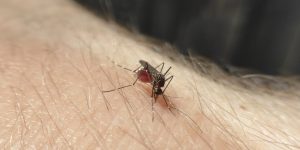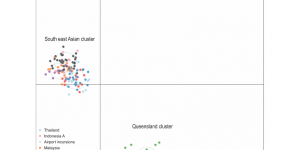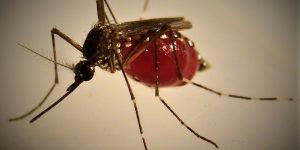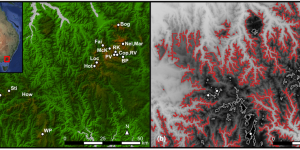Tag: wolbachia
-
WOLBACHIA BACTERIA IN ACTION | How we’re using naturally occurring bacteria to stop mosquitoes from spreading disease
Words and images: Perran Ross Cover photo: Jason Axford Dengue is a major global health issue. It infects millions of people every year and can cause debilitating illness, inflicting joint pain, rash and fever. Without any effective vaccine, the best way to prevent dengue is to target the mosquitoes that transmit it. Dengue is spread […] -
New review | The detection and significance of emerging insecticide resistance in mosquitoes
Nancy, Andrew and Ary have a fresh review article in CSIRO’s ‘Microbiology Australia’ journal. Below is the abstract, for the full text please follow this link. Mosquito-borne arboviruses are increasing in incidence around the world. Australia enjoys some protection from pests and diseases afforded by its geographic isolation coupled with strict biosecurity control at its […] -
Picky feeders: Mosquitoes turn their nose up at non-human blood
Words: Ellen Cottingham Image: Perran Ross Most Australians have sat outside on a summers evening only to return inside to find their legs and arms dotted with fresh itchy mozzie bites. It is not widely known that only female mosquitoes bite warm blooded animals or humans. The reason for this is that females use protein […]blogs.unimelb.edu.au/pearg/2018/02/23/picky-feeders-mosquitoes-turn-their-nose-up-at-non-human-blood
-
Fresh publications!
Climate contributes to the evolution of pesticide resistance | James Maino, Paul Umina, Ary Hoffmann Abstract The evolution of pesticide resistance through space and time is of great economic significance to modern agricultural production systems, and consequently, is often well documented. It can thus be used to dissect the evolutionary and ecological processes […]
Number of posts found: 24



